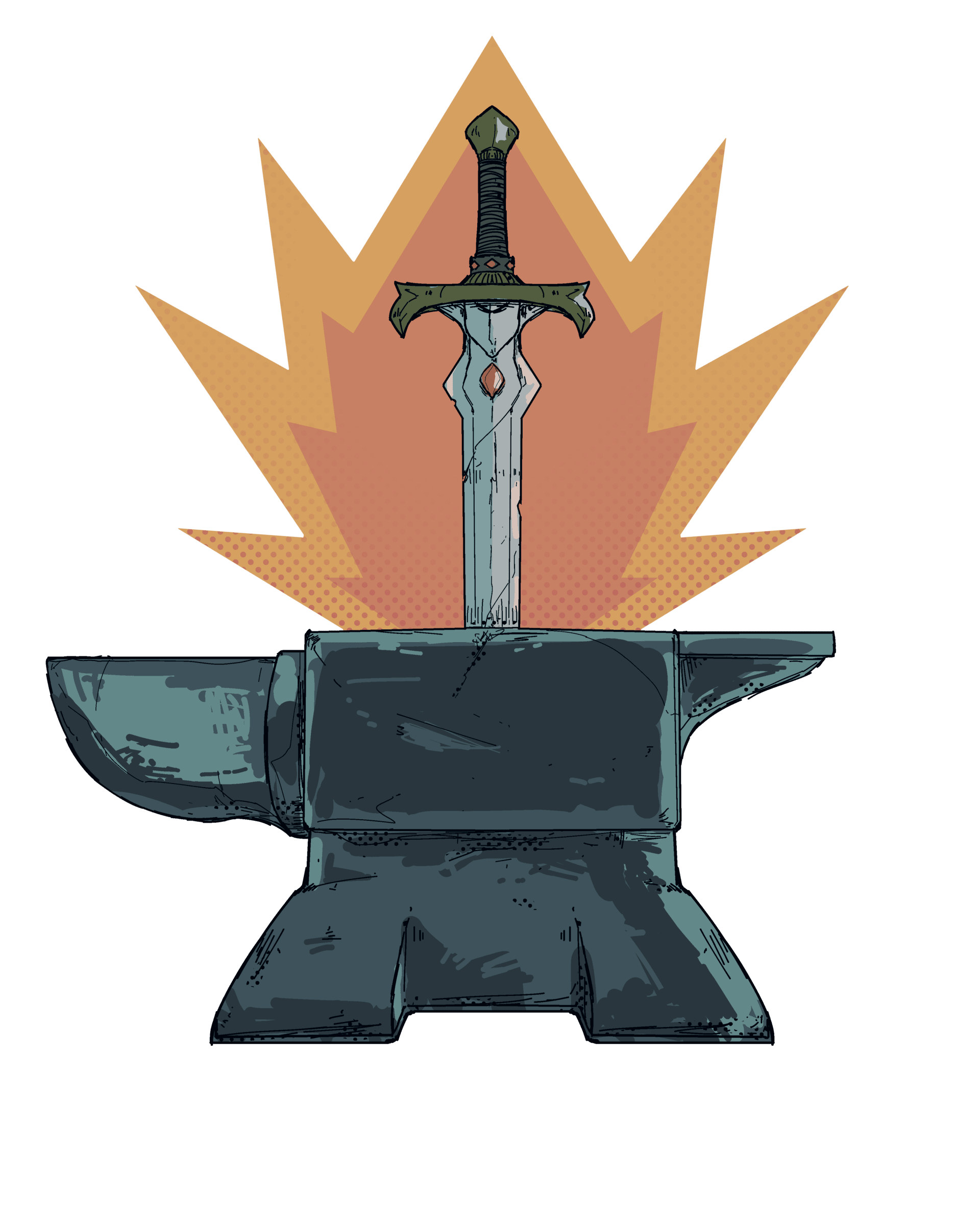illustration: Matthew Lopz

Taking Arthur with him, Merlin turned and strode out of the hall, and all the nobles followed him. As they passed through the streets, the people of the town and the women and children followed too. On they went, the crowd growing bigger and bigger, till they reached the great door of the cathedral. There Merlin stopped, and the knights and nobles gathered around him; those behind pushing and pressing forward, eager to see what was happening.
There was indeed something wonderful to be seen. In front of the doorway was a large stone which had not been there before. Standing upright in the stone was a sword, the hilt of which glittered with gems. Beneath it was written,
"Whoso can draw me from this stone is the rightful king of Britain."
One after another the nobles tried to remove the sword. They pulled and tugged till their muscles cracked. They strained and struggled till they were hot and breathless, for each one was anxious to be king. But it was all in vain. The sword remained firm and fast in the rock.
Then last of all Arthur tried. He took the sword by the hilt and drew it from the stone quite easily.
A cry of wonder went through the crowd, and the nobles fell back in astonishment leaving a clear space round the king. Then as he stood there, holding the magic sword in his hand, the British nobles one after another knelt to Arthur, acknowledging him to be their lord.
"'Be thou the king and we will work thy will, Who love thee.' Then the king in low deep tones And simple words of great authority Bound them by so strait vows to his own self That when they rose, knighted from kneeling, some Were pale as at the passing of a ghost, Some flushed, and others dazed, as one who wakes Half-blinded at the coming of a light."
-- An Island Story: A History of England for Boys and Girls. By Henrietta Elizabeth Marshall
According to certain scholars of comparative mythology, the story of the architypal hero begins with the hero being lead or forced out of normality into a mystical realm there facing trials, receiving aid and eventually proving themselves to be worthy, moving from just goodness to greatness.
The story of The Sword in The Stone is an inversion of this story.
Although Arthur undergoes the trials of the hero, he only does so after he has already "proved" himself by removing The Sword from The Stone.
He is able to do this by being the right person in the right place at about the right time, an endorsement of the eternal principles of heredity and destiny.
Furthermore the story having begun in what would otherwise been it's culmination, has no natural ending, not even the death of Arthur, not even his descent into the underworld can bring about the final end to his story.
What makes the Sword in The Stone important obviously is that everyone tried to remove it but couldn't, Arthur's success was only a success because everyone else had failed.
Failiure is regarded as a negative thing, but if it were not for our failiures we wouldn't learn, and if it were not for the failiures of others, those that succeed would not know better.
If Uther Pendragon had not fought and lost, Arthur would not have fought and won.
>Holy Grail